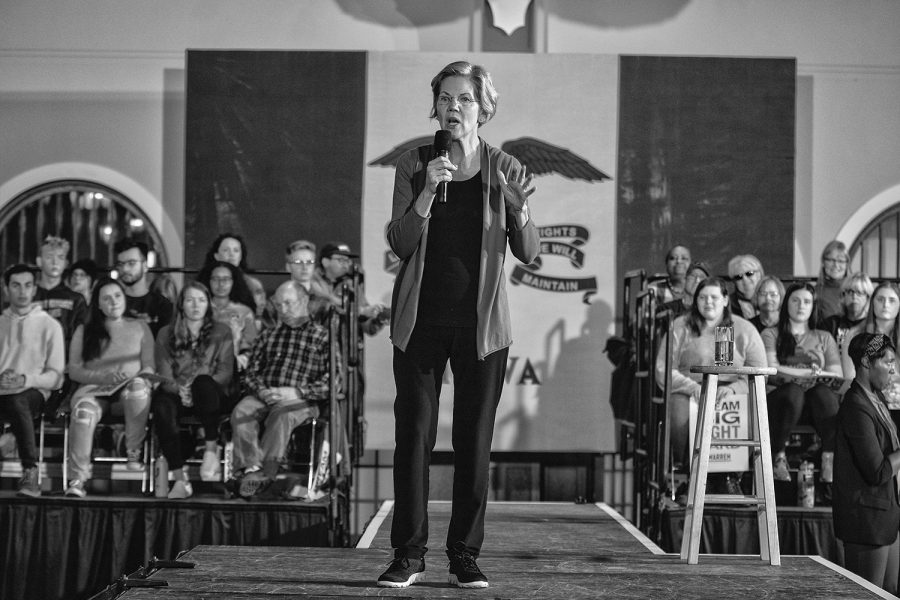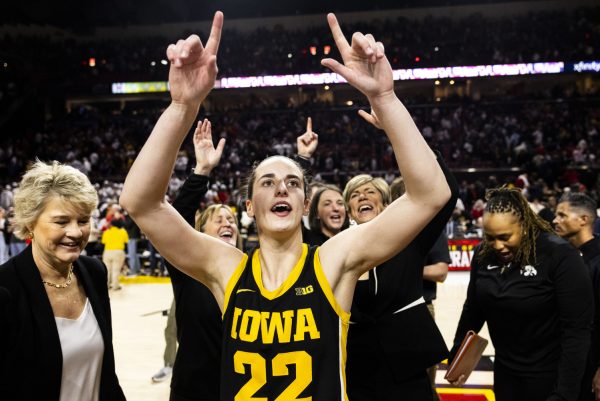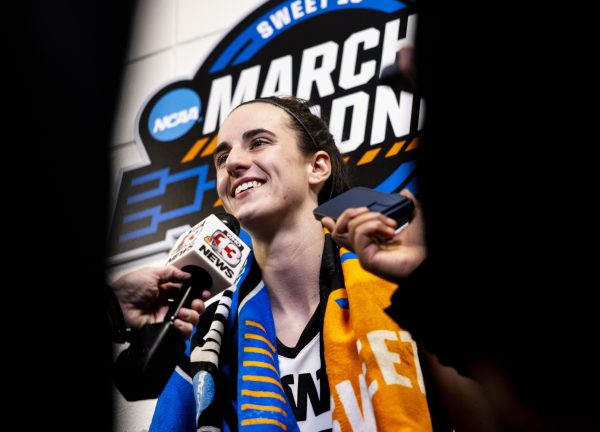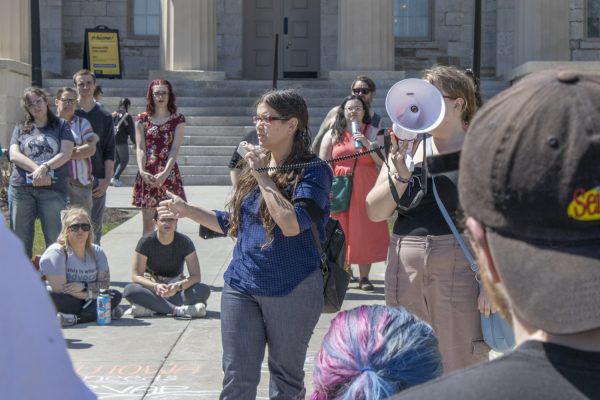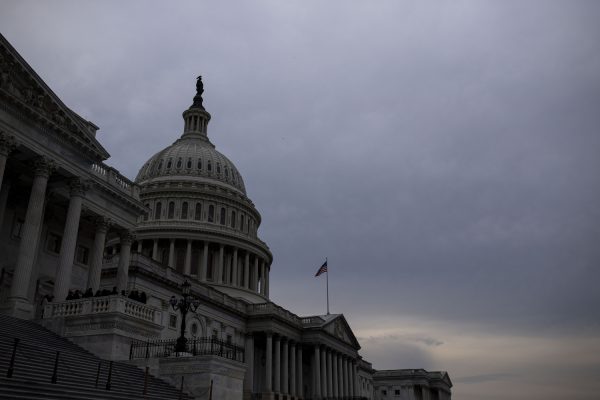Elizabeth Warren talks universal free college, student-loan debt cancellation in interview
In an interview with The Daily Iowan, Sen. Elizabeth Warren said she will get both Democrats and Republicans on board with her plans to implement universal free college and a major student-loan debt cancellation program.
Sen. Elizabeth Warren, D-Mass., speaks at her event in the IMU on Monday, Dec. 2, 2019. Warren spoke on such as climate change and women’s rights.
December 2, 2019
Elizabeth Warren will bring both Democrats and Republicans on board with her Ultra-Millionaire tax to pay for universal free college and broad student-loan debt cancellation, she pledged in an interview with The Daily Iowan.
She said it’s a good policy to run on in a general election, because Republican voters will realize they’re being “cheated,” referring to millionaires and billionaires not paying their fair share in taxes.
“And if we’re just a little more fair, we can invest in this whole generation,” Warren said in the interview with the DI before speaking to a group of about 600 people at the University of Iowa. “So I think it’s something that we’re going to get everybody on board.”
The U.S. senator from Massachusetts highlighted her higher-education policy often at the town hall in the IMU Main Lounge on Monday. She shortened her stump speech in order to take about 15 audience questions.
She’s campaigned largely on her wealth-tax and higher-education plans since announcing her run for the Democratic presidential nomination, tying them to her experience attending a commuter college for $50 a semester before becoming a public-school teacher. Later, she attended a public law school where she paid $450 a semester.
Warren’s wealth tax would only apply to households with a net worth exceeding $50 million — or the top wealthiest 0.1 percent — and they would be taxed an annual 2 percent for every dollar earned after $50 million, and 6 percent for every dollar earned after $1 billion.
According to Warren’s higher-education policy proposals, this would fully pay for universal free college for two- and four-year public colleges and universities and the cancellation of up to $50,000 of student-loan debt for 42 million people.
Warren’s plan would forgive public and private student loans. With eliminating the complexities of existing student-loan programs, Warren said the Education Department would have the capacity to manage a forgiveness program without having to hire more people. Because all private loans will be refinanced as federal loans under her plan, the loans would be streamlined into one system for the Education Department to manage.
“But once [the loan is] in the system, it doesn’t matter what kind of loan it is,” Warren told the DI. “Doesn’t matter whether you’ve got it on Parent PLUS or one of the three-year programs or one of the long-term programs — whatever the program is, the loans are all treated the same.”
Video: Watch Sen. Elizabeth Warren’s complete interview with the DI
Robert Kelchen, associate professor of higher education at Seton Hall University in New Jersey, said while he is skeptical of the Education Department’s capacity to manage a massive student-loan debt forgiveness program, he said universal free college in the U.S. would be economically feasible.
But, Kelchen said it might be hard to get state governments to comply with tuition-free two- and four-year colleges and universities. He also said universities might try to find ways to up-charge students for additional student fees.
Warren said she’s counting on students across the country to advocate for universal free college in order for the plan to receive support from state governments. She also said the policy would require the state to continue putting the same amount of money toward the universities and agree to not add other charges to students.
Warren said she also plans to expand Pell Grants, a form of financial aid given to those who demonstrate the highest financial need on the Free Application for Federal Student Aid, by $100 billion to cover non-tuition expenses for students going to a public college or university, such as living expenses, and to make Pell Grants available for students attending private schools.
“The concern with free-college programs is if a lot more students do go to college, do colleges get the resources they need to provide a quality education?” Kelchen said. “And there are parts of her plan that try to help with that, but it’s not clear whether that would necessarily go far enough.”
According to her plan, experts estimate the one-time cost of her student-loan debt cancellation program to cost $640 billion. The universal free college program is estimated to cost $1.25 trillion over ten years.
UI student Paige Harkan, 19, said at the Dec. 2 town hall that she plans to caucus for Warren in February. She said higher-education policy is extremely important to her when choosing a candidate, and said she thinks Warren has the personality and skill to implement something like universal free college.
“I definitely plan on going to grad school, if not going into a doctorate program, and higher education has always been really important to me,” Harkan said. “And I hope that if I had kids one day that they might want to [pursue] higher ed too, and … it’s just something that means a lot to me.”



